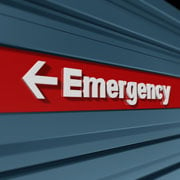Could injections of growth hormone-releasing hormone (GHRH) keep seniors sharp regardless of...
Why Blacks May Suffer Disproportionately From Stroke
 |
|
Credit: Lightspring/Shutterstock
|
 |
|
Credit: Lightspring/Shutterstock
|

Could injections of growth hormone-releasing hormone (GHRH) keep seniors sharp regardless of...

Grandpa/Shutterstock Researchers at the Washington University School of Medicine’s Department of...
